Migrant workers ‘not silver bullet’ to fix aged-care crisis: Anika Wells
Filling shortages in nursing homes with foreign workers is ‘not a silver bullet’, the Aged Care Minister has warned.
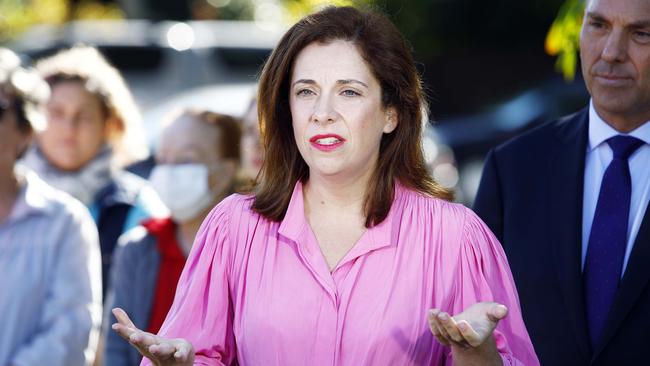
Aged Care Minister Anika Wells has warned that filling severe staffing shortages in nursing homes with foreign workers is “not a silver bullet”, after a new industry report revealed half of Australia’s aged-care workforce plan to leave the sector within three years.
The Albanese government’s pledge to implement sweeping reforms across the aged-care sector and increase patient care minutes to 215 minutes per day by 2024 will focus on staged increases to wages for the nation’s 280,000 aged-care workers.
Ahead of the jobs and skills summit next month, Ms Wells said major investment will be needed to not only boost wages but also accelerate pathways for Australians in nursing and aged-care qualifications to bolster the distressed sector.
The October 25 budget will consider increasing the migration cap to address labour shortages but The Australian understands the government is concerned about not attracting enough qualified staff to achieve its aged-care ambitions amid global competition for workers.
A national survey of aged-care staff from 300 providers, released on Monday, will show almost 60 per cent of frontline workers believe the plan to mandate 215 minutes of personalised care per resident is “impossible” to achieve.
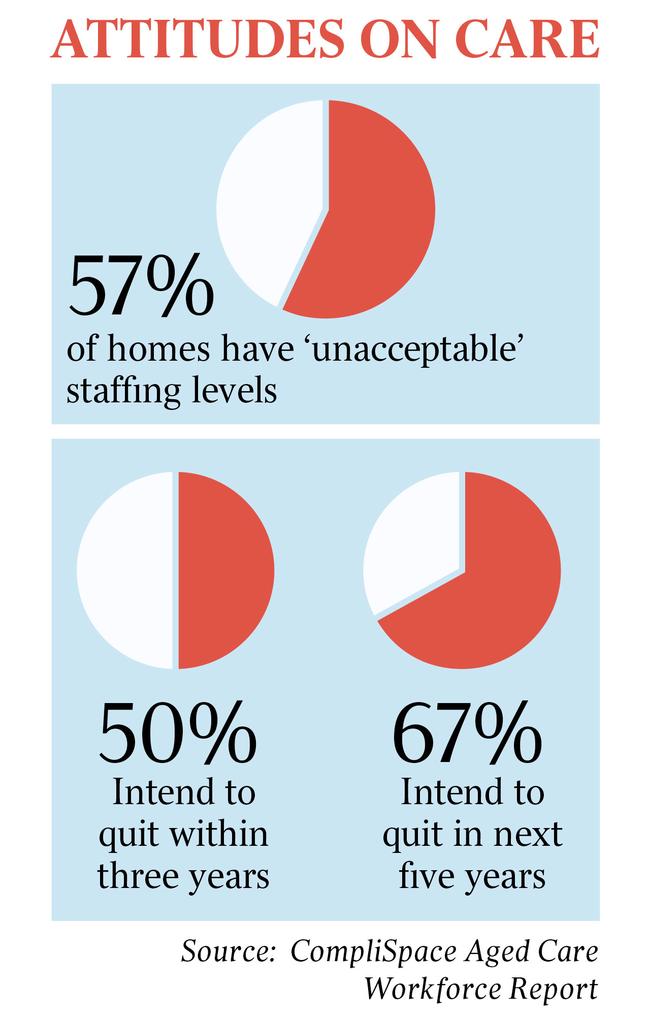
The report said 69 per cent of staff want a pay increase of more than 20 per cent, and reveals 57 per cent of nursing homes have “unacceptable staffing levels”. Half of workers surveyed said they intend to quit within the next three years, with 67 per cent seeking to leave the sector over the next five years.
Ms Wells said the survey, which polled 1100 workers between May 27 and June 12, highlighted the increasing “workloads and role complexity” staff are being forced to deal with.
“Increasing care minutes is a major pillar in the royal commission recommendations and we have two years to build up to 215 care minutes. We understand a larger workforce is needed … which is why we are advocating for a significant and meaningful pay rise,” she told The Australian.
“We are also providing access to nursing and aged care-related qualifications through the fee-free TAFE and additional 20,000 university places initiatives. This will take time and the investment is worth it for a more sustainable workforce.
“Migration will play a role in the aged-care workforce but it is not a silver bullet. Expanding employment opportunities for all Australians will be a focus of the government’s jobs and skills summit.”
The Aged Care Workforce Industry Council in June warned Australia “might miss the boat and other countries like the United Kingdom, Canada and New Zealand will get access to these workers”, if the government doesn’t make it simpler for providers to access migrant staff.
A report recently released by the Committee for Economic Development of Australia said an extra 43,000 workers are needed within a year to meet minimum staffing levels.
Leading compliance service provider CompliSpace, in its third annual aged-care report, reveals 45 per cent of workers had lost half or more of their management teams, with 94 per cent of staff reporting increased workloads due to Covid-19 regulations.
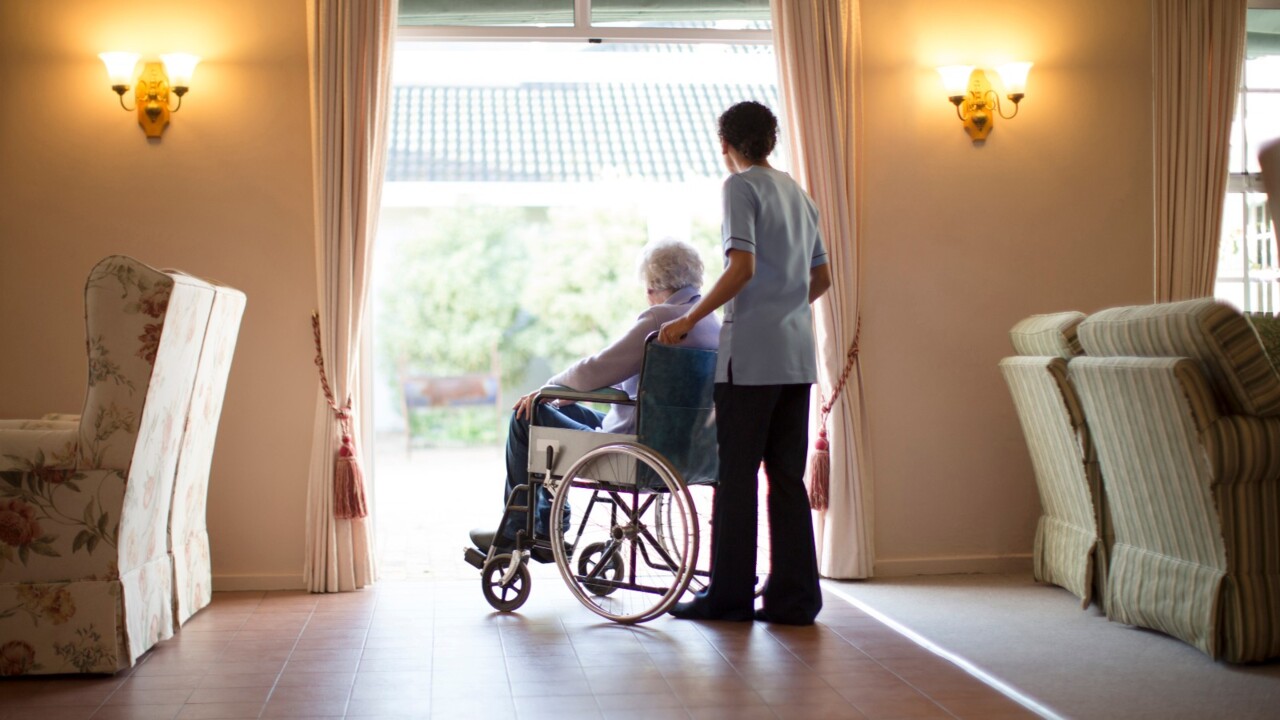
Ms Wells said the government in its first 100 days was on track to double the royal commission recommendations the “Morrison government had 17 months to implement”. “In 17 months the Morrison government shamefully only addressed 6 per cent of … recommendations so no wonder workers are frustrated,” she said.
CompliSpace chief executive David Griffiths, whose clients include Southern Cross Care, CASS Care and Lifeview, said at current staffing levels workers “cannot provide aged-care residents with the quality of care and services they need and deserve”.
“On average, the 191,000 aged-care residents in Australia each receive 180 minutes of direct care per day. This is 35 minutes below the 215 minutes … recommended by the Royal Commission into Aged Care Quality and Safety,” Mr Griffiths said.
“The Australian government has accepted the … recommendation and pledged to impose mandatory staffing requirements in residential aged-care homes. By October 2023, homes will be required to provide 200 minutes of direct care to each resident, daily. This will rise to 215 minutes from October 2024. This mandate is much needed. Yet, currently, it is unattainable.”
The report, Impossible Task: Workers’ Views on the Rising Demands of Aged Care, found 48 per cent of workers believe new staff are not prepared for their roles and “pose a potential risk to residents”. The majority of nursing home workers believe the Albanese government has the best policies to deliver sector-wide reforms but almost 80 per cent are not confident they can be implemented in a way that improves outcomes for residents.


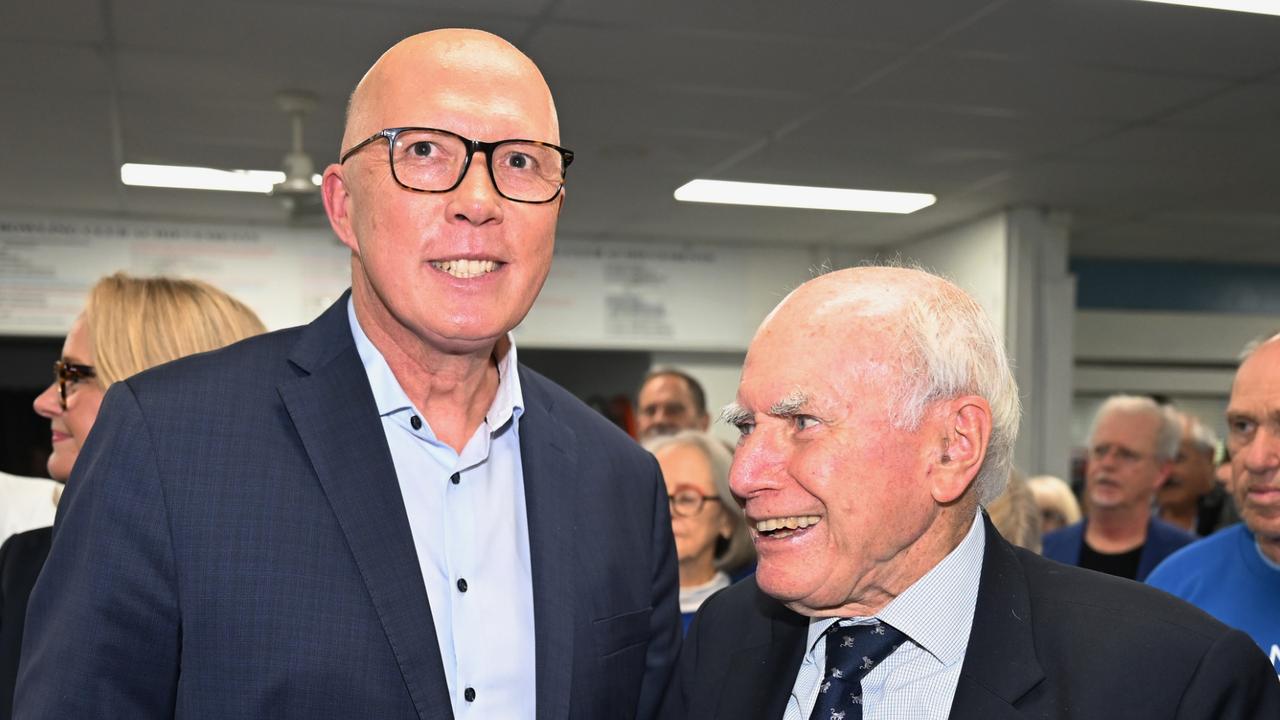
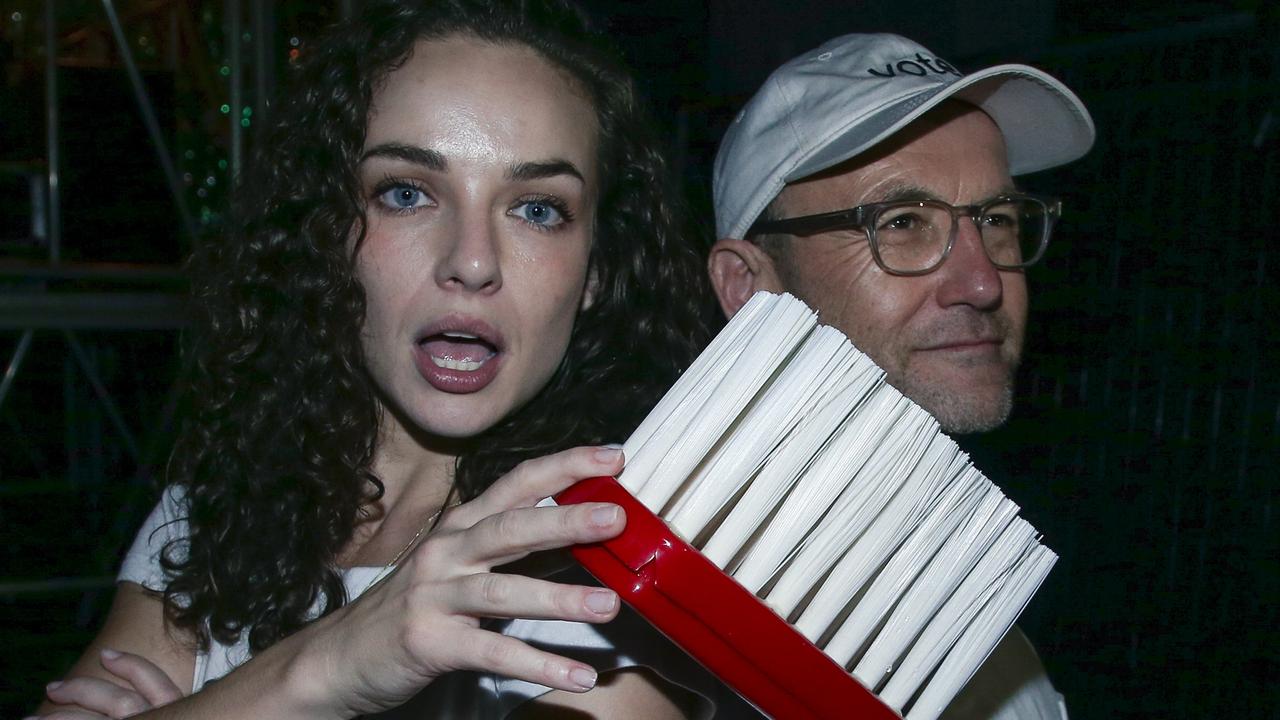
To join the conversation, please log in. Don't have an account? Register
Join the conversation, you are commenting as Logout